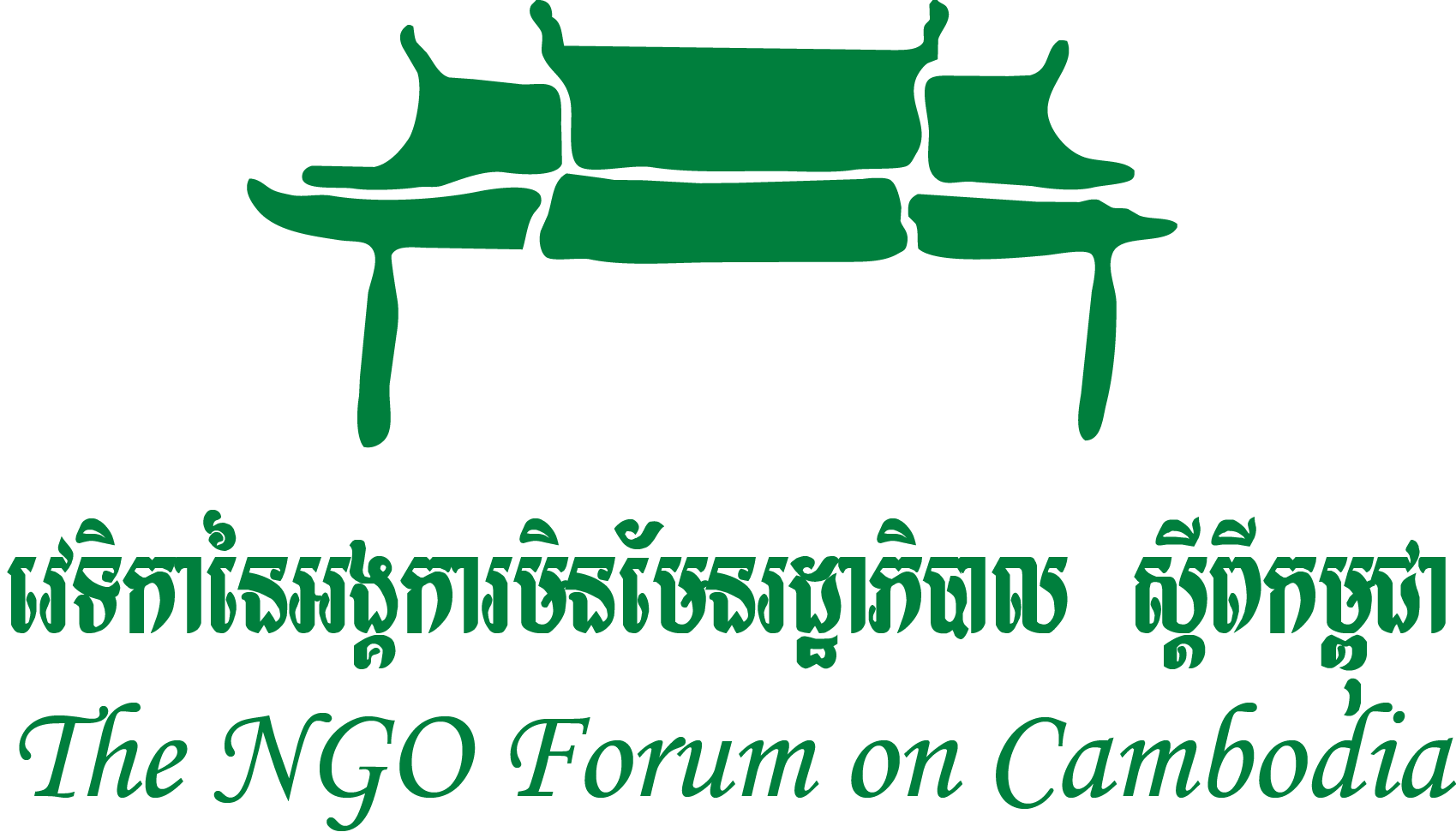[:en]11th National Conference on “Governance on Land and Natural Resources”[:]
- ngofmail
- Dec 6, 2017
- 3 min read
<:en>

On December 06 2017, There are 61 Civil Society Organizations co-organize 11th National Conference on “Governance on Land and Natural Resources” at Tonle basac 2 Restaurant, Phnom Penh. There are 290 participants who from representative of Ministry of Land Urban Planning and Construction, Ministry of Interior, Ministry of Economic and Finance, Ministry of Rural Development, Department of Forestry Administration of Ministry of Agriculture Forest and Fisheries, Company and Private Sectors, University students, development partners, communities from any provinces, National NGOs and International NGOs, and community based organization. This national conference aims for increasing understanding for the participants on the process of land governance, land disputes resolution, as well as the governance on natural resources. On the other hand, NGOs and Community Based Organization (CBO) have opportunity to share their experience and challenge facing from the ground, and would request for the government to consider on the inputs of this national conference.
Welcoming speech at the national conference, Dr. TEK Vannara expressed his congratulations, and expressed his appreciation thanks to the panel of speakers and attendees of the conference, especially H.E NGAN Chamroeun, Under Secretary of State Ministry of Interior and Deputy Executive Head of National Committee for Sub-National Democratic Development Secretariat, Ms. Lim Solinn, Country Director of Oxfam in Cambodia, Ms. Chet Charya, Executive Director of STAR KAMPUCHEA, Mr. Oum Savath, Executive Director of the FACT, Mr. Vuthy Vannara, Deputy Director of Department of Urban Planning and Construction, Dr. THOL Dina, Deputy General Director of Ministry of Urban Planning and Construction, Mr. Nhean Vannak, Director General of the Ministry of Economy and Finance and Mr. Long Ratanak Koma, Deputy Head of the Forest Administration of Ministry of Agriculture, Forestry and Fisheries, and sub-national authorities, Ladies and Gentlemen representatives of development partners and international NGOs, and universities, Youths, Students and Indigenous Peoples.

Dr. TEK Vannara said that the 11th National Conference is an opportunity for communities, civil society, government, development partners, private sector and research institutions together to enhance good cooperation and constructive dialogue in partnership loyalty by highlighting challenges facing the various concerns, recommendations and suggestions. This were means that to move towards creating a good strategic and collaborative activities carried out by a joint responsibility to achieve sustainable development in Cambodia. Civil Society Organizations (CSOs) are ready to contribute with the governance on resolving of land issues and natural resources management for poverty reduction in Cambodia. He added that Cambodia is enjoying a great deal of economic growth and domestic by international investors: infrastructure, agriculture, agro-industry, mineral resources, food production, and tourism. In the process of these projects also require rules and regulations and good practices to properly respect the principle of public participation principles of Free, Prior and Informed Consent in monitoring and controlling implementing the project's developers regularly for proper compliance rights report on social and environmental impact assessment, and the contract, which is the key to preventing and resolving conflicts, land and natural resources. At the same time, CSOs support the Royal Government of Cambodia in deepening reform efforts to effectively manage land and natural resource governance as well as solving land disputes.

H.E Ngan Chamroeun, Under Secretary of State Ministry of Interior and Deputy Executive Head of National Committee for Sub-National Democratic Development Secretariat, speech on opening the National Conference. H.E welcomed the conference and thanked the development partners, NGOs who always participate in our activities. His speech focuses on four areas of reform: the policy of decentralization and decentralization of the sub-national, the management of the public administration, the public financial constraints and the partnership in cooperation. The policy of decentralization has been implemented for more than 15 years in Cambodia so far, in order to make a decision at the grassroots level and it close to the people. To implement decentralized policies at the local level, there is the transfer of function from national to sub-national level and national budget transfer to sub-national level. More than 300 standard documents have been developed and implemented in the process at the local level. The process of decentralization practice remains problematic because there are no specialized officials at the sub-national level, and now a days, specialists are at the national level working in various ministries, in other countries, specialist officials are transferred to sub-national level, after enactment of the law and the principles of decentralization.
<:>




